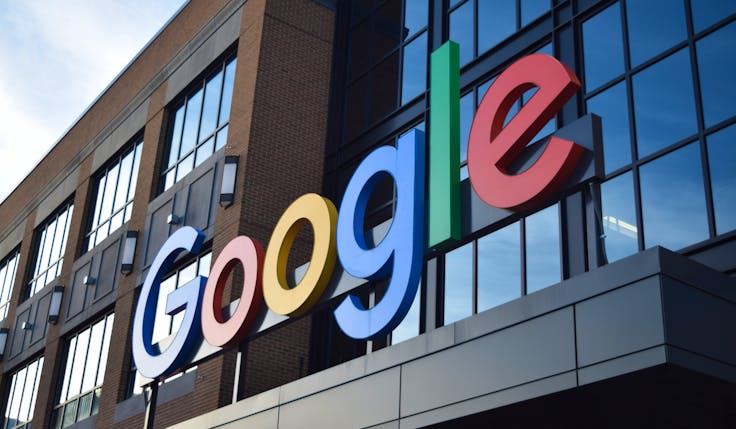AI is going to eat your search traffic – don’t let it eat your brand
AI agents will be transformative in how consumers engage with marketing – but too many marketers are being slow to react.
 We can all agree the world is in a bit of a mess. From stagnating economies, trade wars, real wars, and, of course, high taxes. It’s all looking a bit grim.
We can all agree the world is in a bit of a mess. From stagnating economies, trade wars, real wars, and, of course, high taxes. It’s all looking a bit grim.
Thankfully, help is on the way in the form of artificial intelligence.
There’s just one issue. To enjoy the benefits of AI in our lives, it needs feeding. So far, it’s been on a diet of information, but next up comes your brand. And unless you want your brand to be swallowed whole, you’ll want to read this.
We’re not ready for this
I coach at a local boxing club that my daughter attends and a few weeks ago I showed the other coaches ChatGPT and got it to create a boxing session for the night.
My fellow coaches, who are in their late 50s and mid-60s, were impressed. I felt a little like an AI ninja. A few weeks later, they both said to me, “We’ve got AI now.” They whipped out their phones and showed me their Facebook Messenger apps (I think it prefers Meta now), and they were using the new AI function to do exactly what I did.
This stands out because I predicted it would happen only six months ago. AI is going mainstream and doing it in the products and services we use daily – and society ain’t ready for this.
AI search is going to change marketing… are you prepared?AI isn’t going to come in gradually. One day, it’s not here. The next, it is. And this changes everything. It’s going to do this in every area of our life. One day the NHS will not have AI, and the next, AI will take patient notes as staff wearing AI-devices capture everything they do and say to patients.
One day, the police don’t have AI. The next, you’ll have it taking witness statements and building crime files before the officer has even booked the suspect into custody.
And for you brand marketers out there. One day, your consumer won’t be able to use AI to buy your category. The next, well, the consumer won’t even visit your website. And this is where the problems begin.
Context and interface
Rory Sutherland recently posted on LinkedIn about how AI will change consumption. In the post, he says, “brands undoubtedly sit fairly high in the decision tree when consumers are thinking of many goods and services, but two things generally sit higher still, acting as earlier forks in the road on the journey towards a buying decision. Those two things are context and interface”.
The post remains one of the best takes on AI agents I’ve ever read and ends with a fantastic line: “What if the AI agent was trained to prioritise my interests over those of the seller?”
And that’s the future right there. That’s the Google killer that your brand needs to think about.
For years, I’ve been saying that Google is going nowhere. It still dominates the search market, and we use its products daily. But we are now entering one of the most bizarre phases in history.
Google on why brands should stop fixating on an ‘AI strategy’A few years ago online meetings weren’t a thing. And now they are. A few years ago, online meeting transcription services weren’t available. Now, you can have that for free with Google Meet. A few years ago, Google and widespread internet adoption weren’t a thing, and now we search for everything.
But what if it wasn’t and we didn’t?
They didn’t use a search engine in Star Trek, after all, the computer did everything for them. And this is where we’re heading.
“Computer, order me 3 pizzas.”
“Computer, I want to fly to Rome this weekend, find me a flight deal and a hotel.”
You get the idea. AI agents change commerce because, as Sutherland points out, the context and interface will change.
AI agents vs the messy middle
OpenAI has launched its first AI agent, and while it is still early days, you can be certain that you will all be using AI agents soon.
I would argue that for nearly all of us we tend to reduce most of life’s tedious tasks to a bare minimum. But this raises a core issue. If AI is taking tasks like the online weekly shop and doing it for you then what else will it take?
The answer is research. This area, which Google calls ‘the messy middle’, is about to get a clean-up. The whole point of the messy middle is that people have a great many iterations of their search on the way to making a purchase.
AI agents, though, will do this for you, which means brands can’t impact buyer behaviour through search. And that’s going to hit your human traffic massively.
Sure, you’ll get bot traffic. But you’ll also lose the ability to win business with your distinctive brand assets, online store structure, and general pizzazz. Humans will instead sort through the choices provided for them and then buy.
So, where does this put the whole search market?
How to stop AI eating your brand
According to Datos, the amount of AI searches being done right sees Google servicing more than 14 billion searches per day. ChatGPT, meanwhile, had (at the very most) 37.5m searches per day.
ChatGPT and other AI search engines aren’t even a slight threat to Google. That is until the context and interface change. And this day is coming.
Just like my daughter has her own AI assistant on Snapchat, and 65-year-old boxing coaches are using AI in Messenger. AI is going to people.
So, what’s your brand’s life raft? I believe it will come in 2 forms.
1. Sponsored recommendations
2. Organic AI research.
Sponsored recommendations will be the paid search of the future. Perhaps even Return on Recommendation Spend (RORS) will be a thing.
If you want AI to find you 10 hotel options in Rome, for example, you’ll probably get five they found using their systems and 5 that have paid to be recommended.
The question you should be asking, though, is how do you get recommended in the organic agent results? It will come down to platform SEO, search engine SEO and PR.
Why most marketers are using AI wrong (and how to fix it)Platform SEO will enhance your organic visibility for the keywords you wish to rank for on the platform. If your customers spend more time on Facebook, you’ll want to be in the data that Meta’s AI assistant pulls up. If your customers are on TikTok, you’ll want to be featured in the data source they will use for their AI assistant. You get the idea.
The second part is search engine SEO. This will also depend on the AI agent platform where you want to be found. ChatGPT favours Bing results. Gemini favours Google results. You’ll want to be ranked higher in those search engines to be featured in the results.
The final part is PR. PR generates conversations online and media sites are used to train LLMs. We also know that Google uses brand mentions (mention information) related to brands and the subjects of information they are linked with to assign authority. PR delivers a massive amount of value in the AI world.
Now, the final and most obvious way to stop AI from eating your brand is to maximise brand marketing. You want to be searched for directly or for AI agents to be instructed to include you in their tasks. And we’re back again in the world of building mental availability.
“Search for holidays to Rome on (insert travel company).”
“Order me a peperoni pizza from (insert pizza company).”
The thing with everything I’ve mentioned is that the AI apocalypse won’t happen slowly. It will happen all at once. Every platform is in an agentic AI arms race to acquire and retain users.
My advice? Don’t sleep on this. Start planning for this. Start to think about AI agents and how they search. Because it’s going to change everything.






